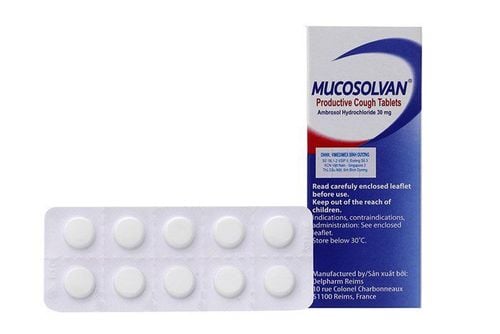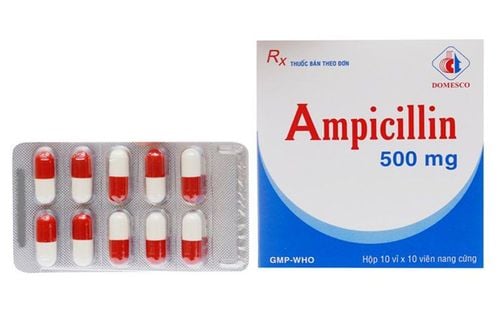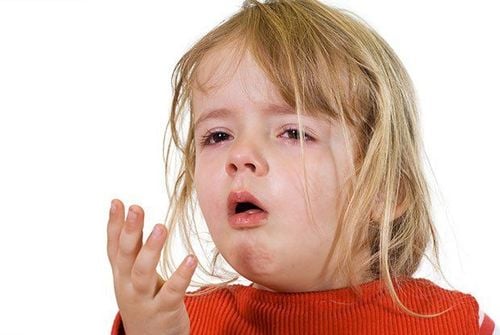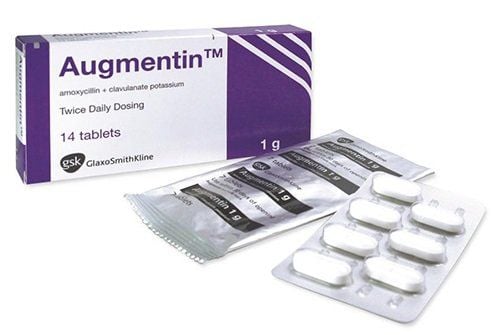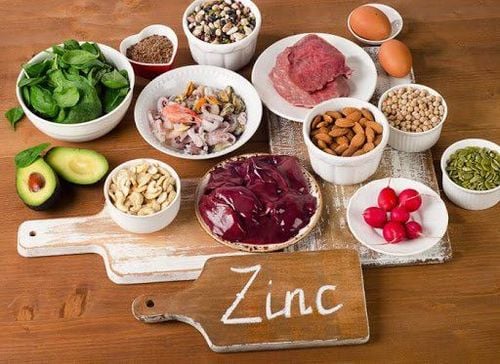This article was professionally consulted by Master, Doctor Doan Ngoc Quynh Tram, a Pediatrician and Neonatologist at the Department of Pediatrics and Neonatology at Vinmec Nha Trang International General Hospital.
Coughing in children is often not a cause for concern, as it can be triggered by common colds or allergies. However, since non-prescription cough and cold medicines are not recommended for children under 6 years old, including infants, parents should familiarize themselves with home remedies for cough relief, especially if the cough disrupts the child's sleep.
1. Home remedies for cough in children
Colds and coughs are among the most common health issues in children and can occur throughout the year. While there is no cure—such as antibiotics, syrups, or pills—parents can take advantage of various home remedies to relieve coughing, sneezing, and wheezing.
Coughs can be categorized into two types: dry coughs and productive coughs. Productive coughs typically produce mucus in the throat and nasal area, whereas dry coughs do not generate any phlegm. Remedies for each type of cough may differ.
Children can catch infections through airborne germs when someone coughs or sneezes or through direct contact with an infected person. Therefore, maintaining hygiene and regularly washing your child’s hands is crucial. However, if your child catches a cold and coughs, consider trying the following effective home remedies to relieve their symptoms.
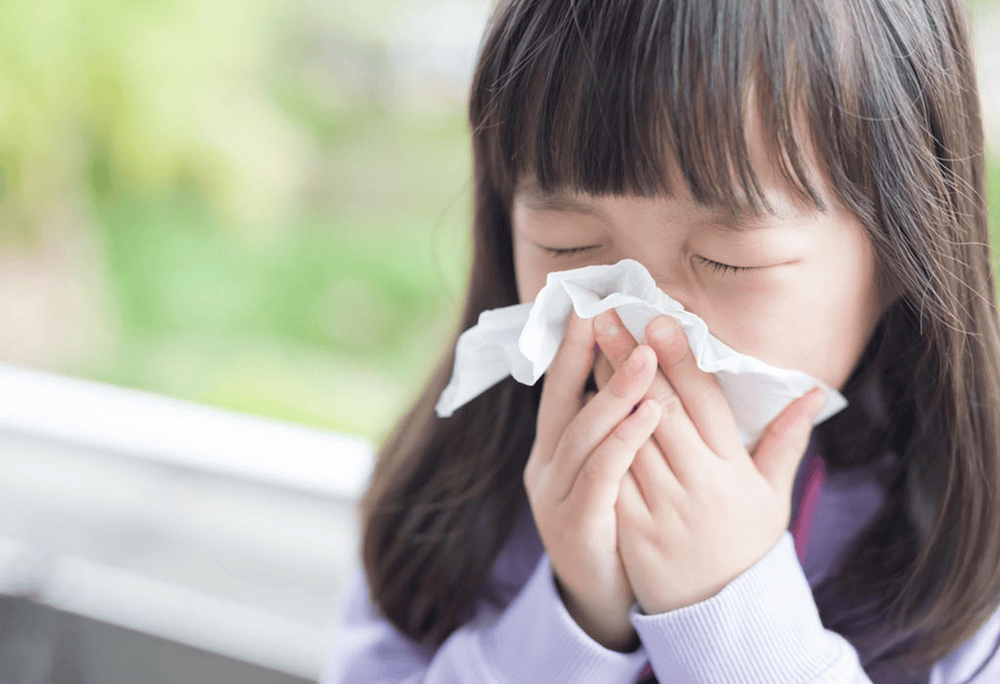
2. How to cure a cough in newborns
- Breast Milk
There is no better remedy for a newborn than breast milk.
In fact, breast milk serves as a natural medicine for infections in newborns up to six months old. Frequent feedings can soothe a baby's cough and help them feel more comfortable through close contact with their mother.
- Nasal Drops
Nasal drops are effective for babies who exhibit both cough and nasal congestion. Your pediatrician can recommend non-prescription nasal drops. Alternatively, parents can create a saline solution at home in emergencies. To make saline drops, mix ½ teaspoon of salt with 8 teaspoons of warm filtered water in a sterilized bowl. Keep the baby’s head tilted while administering the drops to ensure the solution stays in the nostrils. Only use homemade saline solutions in emergencies, as they may be prone to bacterial contamination.
- Turmeric
Turmeric has been recognized for its medicinal properties for centuries.
To use it, mix a small amount of turmeric with warm water to create a paste, then apply it to your child's chest, forehead, and the soles of their feet. Rinse off the paste after some time. The warmth from the turmeric helps thin mucus in cases of phlegmy coughs, making it easier to drain.
- Massage with warm mustard oil
Heat a cup of mustard oil with two cloves of garlic. Once warm, massage the oil onto your baby's feet, chest, back, and palms. Wipe off any excess oil with a cloth.
3. How to treat coughs in children by age
3.1. Home remedies for coughs suitable for children 9 months and older
Jaggery, fennel, black pepper
This concoction can soothe coughs and sore throats and requires the following ingredients:
- Jaggery: 1 or 2 teaspoons
- Black pepper: 1 to 2 seeds
- Fennel seeds: a pinch
- Water: 1 cup
Mix all ingredients and boil them in water. Let the mixture cool, then strain it for your child to drink. Do not exceed two teaspoons of this concoction, as jaggery and pepper are potent and should be given in small amounts.
Coconut oil massage
For this method, you will need:
- ½ cup of coconut oil
- 1 onion
- 1 betel branch
Heat the coconut oil and add the other ingredients. Once the mixture is warm, turn off the stove. Allow the oil to cool to a lukewarm temperature, then apply it to your baby's chest, back, soles of the feet, and palms. This massage can help relieve cough symptoms.
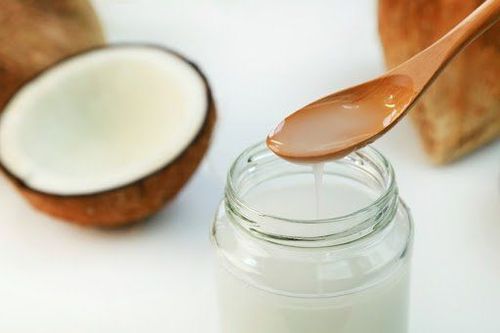
3.2 Home remedies for coughs suitable for children aged 1 and up
- Honey
It's important to avoid giving honey to children under one year old, as they lack the digestive capacity to break down some particles found in raw honey. However, once a child is over 12 months old, honey can be an effective remedy for fighting germs that cause colds and coughs. For enhanced results, honey can be combined with pepper, dried ginger, and lemon juice.
- Turmeric milk
Turmeric milk is a great remedy not only for children but also for adults dealing with dry coughs. Prepare a glass of milk mixed with a little turmeric in the evening, and consider adding jaggery for sweetness. This combination of milk and turmeric is both healthy and nutritious.
- Citrus Juice
Offer your child small sips of juice rich in Vitamin C, such as lemon or orange juice. Vitamin C is effective in combating the germs that lead to colds.
- Gargle
Encourage your child to gargle with warm water or salt water two to three times a day.
This practice can help relieve a sore throat and a cough, and regular gargling can yield quick results.
3.3 Cough remedies for children of all ages
- Steam
Steam can naturally alleviate nasal congestion and respiratory irritation in children.
Run a hot shower in the bathroom and let the steam fill the room. After turning off the faucet, take your child into the room to benefit from the steam, which can help ease coughs, especially for infants.
Additionally, steam is good for both young and old children. Using a steam inhaler or humidifier is also a good option. Avoid using boiled water for steaming, as it can pose a risk if the child knocks it over.
- Elevate the head
Elevating your child's head while they sleep can help stabilize their breathing and reduce interruptions due to coughs.
- Wear appropriate clothing
Cold environments promote the growth of germs that cause colds and coughs. If your child has a mild cold and cough, make sure to keep them warm.
- Hydrate
Ensure your child stays hydrated while they have a cough. This includes encouraging them to drink warm water, breastfeeding if they are a newborn, or consuming other liquids.
Some children may find solid foods uncomfortable when they have a cold or cough, so liquid foods can provide essential nutrients, strengthen their immune system, and are easier to consume.
- Nasal aspirator
If your child frequently experiences a stuffy nose and coughs accompanied by phlegm, consider using a nasal aspirator. This device can safely remove mucus when your child is too young to sneeze on their own, helping to reduce the irritation that triggers coughing.
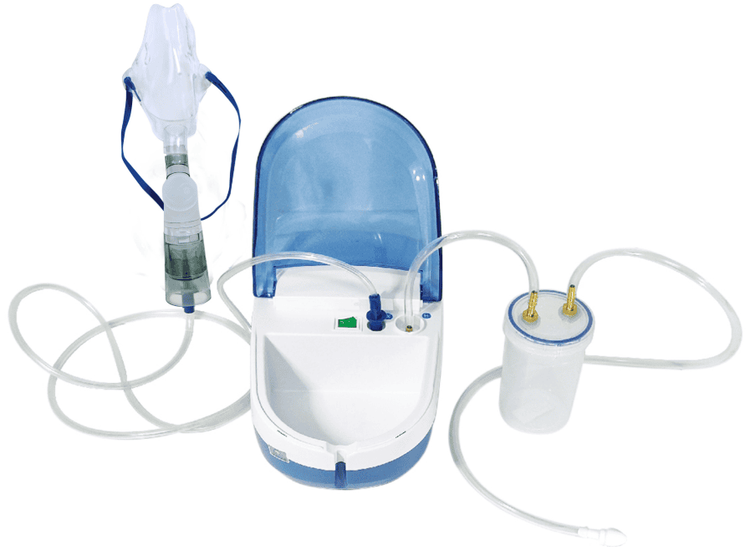
4. Do's and don'ts for managing your child's cough
- Give your baby age-appropriate cold and cough medications.
- Don't ignore cold or cough symptoms; they could signal a more serious condition such as pneumonia.
- Don't panic or worry too much if your baby is coughing and won't stop crying.
- Try the above home remedies for coughs, especially at night and in emergencies.
- Consult your pediatrician if you notice anything unusual, such as your baby coughing up green phlegm.
- Don't ignore a high fever and consult your pediatrician immediately.
- Avoid using ingredients that your baby is allergic to.
- Pay attention to the temperature of your baby's bedroom, not too hot or too cold.
- Wash your baby's hands and hands thoroughly with soap to avoid transferring germs from different surfaces.
- When your baby is 1 year old, introduce foods rich in phytochemicals, such as dark green, yellow, and red fruits and vegetables.
- Teach your child to sneeze or cough into a tissue or the inside of their elbow, not their hands. Germs will linger around their hands, spreading them back to them, making them more susceptible to catching a cold or cough.
- Get your child plenty of regular exercise to help boost their immune system.
- If a cold or cough lasts longer than a week, see your pediatrician to confirm whether it is a common cold or a symptom of something else.
In conclusion, children are particularly susceptible to colds and coughs because their immune and respiratory systems are not fully developed. They typically experience these illnesses 6 to 12 times a year. With the treatments mentioned for coughs in children, parents can feel more confident in managing their children's coughs. However, it remains important to focus on improving a child’s overall resistance through proper hygiene and nutrition, as these are critical components of comprehensive health care. This approach helps strengthen children against factors that cause coughs and common colds.
If a child's cough persists for an extended period, it is essential to take them to a reputable medical facility for examination. Vinmec International General Hospital, with its experienced pediatricians and modern equipment, is trusted by many parents for treating children's illnesses, including coughs with phlegm, wheezing, high fever, and pneumonia…
Additionally, parents should consider supplementing their children's diets with foods that contain lysine, essential micro-minerals, and vitamins such as zinc, chromium, selenium, and B vitamins. These nutrients help meet their nutritional needs while supporting the immune system, enhancing resistance, and reducing the risk of upper respiratory tract infections, bronchitis, and the flu.
Lysine is particularly important for children's development. It promotes the production of digestive enzymes, which can stimulate better appetite and improve digestion, maximize nutrient absorption. Boosting lysine intake can help the body produce antibodies, develop resistance, and ultimately assist in reducing coughs and thinning phlegm in children.
Parents can learn more:
Why do children need to supplement Lysine?
To arrange an appointment, please call … or make your reservation directly HERE. You may also download the MyVinmec app to schedule appointments faster and manage your reservations more conveniently.





